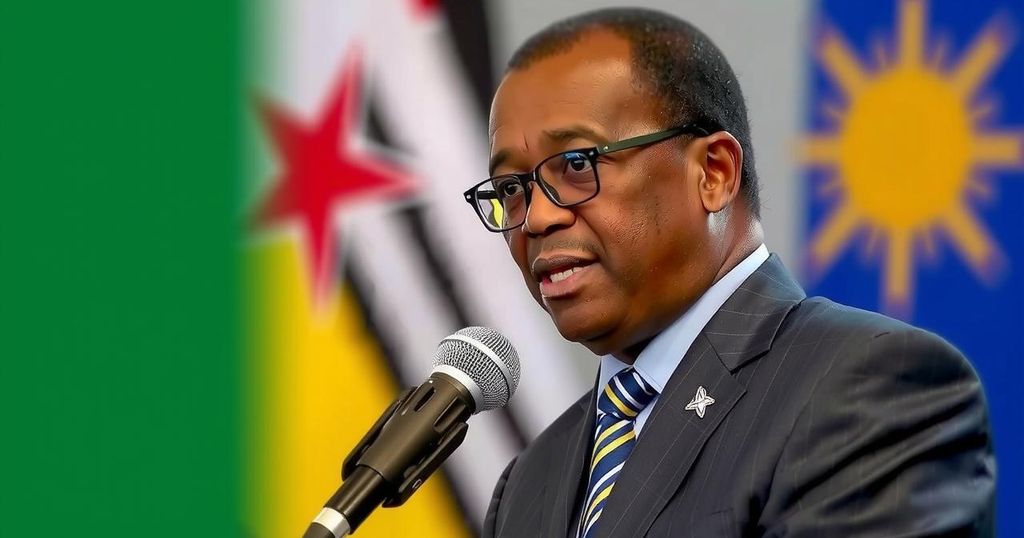Botswana’s President Mokgweetsi Masisi has conceded to the opposition, leading to the end of his party’s 58-year dominance in national politics as initial results place the UDC in a commanding position.
In a significant political shift, President Mokgweetsi Masisi of Botswana has accepted defeat in the recent elections, effectively terminating the Botswana Democratic Party’s (BDP) longstanding 58-year governance. The preliminary election results indicated a disappointing performance for the BDP, positioning it in fourth place, while the opposition coalition, the Umbrella for Democratic Change (UDC), emerged as the front-runner.
Botswana has maintained a stable democratic environment since its independence in 1966, with the BDP overseeing the country for nearly six decades. However, recent electoral trends suggested increasing dissatisfaction among voters, culminating in a pivotal election where the UDC mobilized significant support. This election marks a transformative moment in Botswana’s political landscape, as it reflects the electorate’s desire for change after years of BDP dominance.
The concession by President Masisi signifies a landmark moment in Botswana’s political history, as the BDP’s 58-year rule comes to an end. The emergence of the UDC as a serious contender showcases the electorate’s shifting dynamics and highlights the possibilities for a new political era in the country. This outcome could potentially reshape policy directions and governance in Botswana moving forward.
Original Source: www.aljazeera.com






